
NAUTILUS
Scope & Guideline
Exploring the Depths of Aquatic Knowledge
Introduction
Aims and Scopes
- Taxonomy and Systematics:
The journal emphasizes the classification and systematic study of mollusks, with numerous publications detailing new species descriptions and revisions of existing taxa. - Anatomy and Morphology:
Research often includes detailed anatomical studies, providing insights into the structural characteristics of various molluscan species, which aids in understanding their evolutionary relationships. - Ecology and Distribution:
A significant portion of the research focuses on the ecological aspects and distribution patterns of mollusks, including studies on habitat preferences and responses to environmental changes. - Paleontology and Fossil Record:
The journal contributes to the understanding of molluscan history through paleontological studies, highlighting fossil discoveries and their implications for evolutionary biology. - Conservation and Environmental Impact:
Research also addresses the conservation status of molluscan species and the impacts of human activities on their habitats, reflecting a growing concern for biodiversity.
Trending and Emerging
- Molecular Phylogenetics:
There is an increasing trend towards the application of molecular techniques to resolve phylogenetic relationships among mollusks, which enhances understanding of their evolutionary history. - Invasive Species Research:
Studies on the impacts and distribution of non-native molluscan species are gaining traction, reflecting a broader interest in ecological dynamics and conservation challenges. - Climate Change Effects:
Research addressing the impacts of climate change on molluscan populations and their habitats is emerging, as scientists seek to understand the resilience and adaptability of these species. - Conservation Genetics:
The application of genetic tools to inform conservation strategies for threatened molluscan species is becoming increasingly prominent, indicating a shift towards data-driven conservation efforts. - Interdisciplinary Approaches:
There is a noticeable trend towards interdisciplinary research that combines malacology with fields such as ecology, environmental science, and climate studies, enhancing the relevance of findings.
Declining or Waning
- Traditional Morphological Studies:
There has been a decline in purely descriptive morphological studies without a broader ecological or evolutionary context, as researchers increasingly seek to integrate molecular and ecological data. - Fossil Studies of Common Species:
Research focusing on the fossilization and history of widely known molluscan species has decreased, possibly due to a shift towards more unique or lesser-known taxa that can provide novel insights. - General Biodiversity Surveys:
Broad surveys of molluscan biodiversity without specific hypotheses or questions are less frequent, as the field moves towards targeted studies that address specific ecological or conservation issues.
Similar Journals

CYBIUM
Unveiling the mysteries of aquatic ecosystems since 1996.CYBIUM is a reputable journal published by the Société Française d'Ichtyologie, dedicated to advancing research within the fields of Animal Science and Zoology as well as Ecology, Evolution, Behavior and Systematics. With a commitment to fostering scientific dialogue, CYBIUM has been a valuable resource for scholars since its inception in 1996, reporting on a wide array of ichthyological studies and aquatic biology. The journal is recognized in the 2023 Scopus rankings with a notable position in the Q3 quartile for Animal Science and Zoology and Q4 for Ecology, Evolution, Behavior and Systematics, reflecting its growing influence in these disciplines. Although currently not categorized as Open Access, CYBIUM continues to provide essential insights into fish biology and ecology from the heart of France, the Museum national d'Histoire naturelle in Paris. Researchers, professionals, and students in related fields will find CYBIUM an indispensable tool for staying informed about the latest developments and research trends within ichthyology and marine sciences.
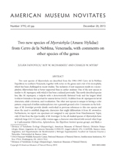
AMERICAN MUSEUM NOVITATES
Exploring the Depths of Natural History and Cultural Heritage.AMERICAN MUSEUM NOVITATES, published by the American Museum of Natural History, stands as a prestigious platform for scholarly dissemination in the fields of Archeology, History, and Museology. With an impressive impact factor evidenced by its Q1 rankings in 2023 across these categories, this journal is a vital resource for researchers and professionals seeking to advance knowledge and understanding within these disciplines. The journal's commitment to quality research is reflected in its high rankings within Scopus, where it boasts a remarkable rank of #37 in History and #4 in Museology, showcasing its relevance and influence in the academic community. While open access options are not currently available, readers can access compelling research articles that span from its inception in 2005 to the present date, making it an essential reference for those interested in the historical and cultural implications of natural history and museum studies. Located in the heart of New York, this journal fosters a collaboration between scientists and scholars, enriching both academic and public understanding of our shared heritage.
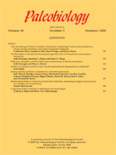
PALEOBIOLOGY
Decoding the Secrets of Life's Ancient NarrativesPALEOBIOLOGY, published by Cambridge University Press, is a premier, peer-reviewed journal that stands at the forefront of research in paleontological sciences. With a robust commitment to advancing the study of the interactions between ancient life forms and their environments, the journal has established itself as a vital resource for researchers, professionals, and students in the fields of paleontology, ecology, and evolutionary biology. Spanning from 1975 to 2024, it boasts an impressive Q1 ranking in several categories, including Agricultural and Biological Sciences, Ecology, and Paleontology, indicative of its high impact and relevance in shaping contemporary scientific discourse. While the journal is not open access, it offers a variety of subscription and access options, ensuring broad distribution and visibility of published research. As a leader in its discipline, PALEOBIOLOGY aims to facilitate a deeper understanding of our planet's biological history, making it an essential publication for anyone interested in the dynamics of life across geological time.
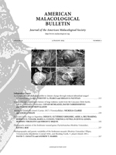
AMERICAN MALACOLOGICAL BULLETIN
Fostering Innovation in Malacological Studies.American Malacological Bulletin is a distinguished journal published by the American Malacological Society, Inc., dedicated to advancing the field of malacology, which encompasses the study of mollusks and their ecological significance. Since its inception, the journal has provided a vital platform for the dissemination of research findings, reviews, and significant contributions from both established and emerging scholars. With an ISSN of 0740-2783 and an E-ISSN of 2162-2698, it holds a global reputation within its niche, albeit recognized within the Q4 category in both Aquatic Science and Ecology, Evolution, Behavior and Systematics based on its 2023 ranking. The bulletin's focus on fostering dialogue and collaboration among researchers around the world underscores its importance within the scientific community. As a resource housed in the Delaware Museum of Natural History, it actively contributes to the ongoing conversation on ecological conservation, biodiversity, and the evolving challenges facing marine ecosystems. Though not classified as an Open Access journal, it remains accessible to scholars and students eager to explore contemporary research in malacology.

ANNALES ZOOLOGICI FENNICI
Celebrating Four Decades of Zoological ExcellenceANNALES ZOOLOGICI FENNICI, published by the Finnish Zoological Botanical Publishing Board, is a prominent scientific journal dedicated to advancing the fields of Animal Science, Zoology, Ecology, Evolution, Behavior, and Systematics. Based in Finland and serving an international audience, this journal has been an essential resource since its inception in 1974, offering valuable insights into biodiversity, conservation, and ecological dynamics. While it holds a respectable Q3 quartile ranking across several relevant categories in 2023, its impactful contributions to the scientific community continue to promote critical discussions and foster research collaborations. Although the journal is not currently open access, its robust indexing in Scopus and recognition within the academic community underscore its significance. As a researcher, professional, or student, engaging with the ANNALES ZOOLOGICI FENNICI not only enriches your knowledge but also aligns you with the forefront of zoological research and conservation studies.
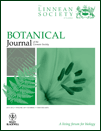
BOTANICAL JOURNAL OF THE LINNEAN SOCIETY
Connecting Scholars to the Heart of Plant ScienceThe Botanical Journal of the Linnean Society, published by Oxford University Press, stands as a premier platform for interdisciplinary research within the realms of Ecology, Evolution, Behavior, and Plant Science. With a notable impact factor reflective of its esteemed reputation, this journal is classified in the Q1 quartile for both Ecology and Plant Science, placing it among the most influential publications in these fields. Since its inception in 1969, and with an anticipated convergence of research extending to 2024, it has become essential for scholars and professionals seeking to engage with cutting-edge studies, theoretical frameworks, and practical applications that drive our understanding of plant biology and ecological systems. The journal’s commitment to excellence is underscored by its robust Scopus rankings—achieving an impressive 83rd percentile in Ecology and a 82nd percentile in Plant Science. This makes the Botanical Journal of the Linnean Society a crucial resource for researchers, educators, and students alike, eager to advance their knowledge and contribute to the evolving discourse in botany and environmental studies.
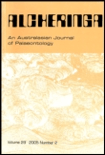
ALCHERINGA
Unraveling the Mysteries of Life Through ResearchALCHERINGA, published by Taylor & Francis Ltd, is a distinguished academic journal that has been at the forefront of research in the fields of ecology, evolution, behavior, systematics, and paleontology since its inception in 1975. With an ISSN of 0311-5518 and E-ISSN 1752-0754, this journal serves as a critical platform for the dissemination of high-quality research, contributing significantly to the understanding of biological and geological sciences. Ranking in the Q3 quartile for both Ecology, Evolution, Behavior and Systematics, as well as Paleontology, ALCHERINGA is well-positioned within the academic community, attracting submissions from researchers across the globe. The journal's Scopus ranks further highlight its relevance, particularly its position in the 51st percentile for Ecology and the 50th percentile for Paleontology. Although it does not operate under an open access model, ALCHERINGA remains committed to providing valuable insights and fostering discussions that are essential for the advancement of these vital scientific disciplines. Researchers, professionals, and students are encouraged to explore the profound implications of the studies published within, making it an indispensable resource for anyone aiming to deepen their expertise in these fields.
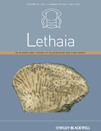
LETHAIA
Connecting Paleontology with Ecological PerspectivesLETHAIA, an esteemed journal published by Scandinavian University Press - Universitetsforlaget AS, serves as a vital platform for the dissemination of innovative research in the fields of paleontology as well as ecology, evolution, behavior, and systematics. Established in 1968 and continuing its impactful journey until 2024, LETHAIA has consistently contributed to advancing scientific understanding of Earth's biological and geological history. With a 2023 impact factor placing it in the Q2 category for both Paleontology and Ecology, Evolution, Behavior and Systematics, the journal is recognized for its high-quality, peer-reviewed articles that engage and challenge the academic community. Researchers, professionals, and students alike will find LETHAIA to be an indispensable resource for the latest findings, methodologies, and theoretical advancements in these interlinked disciplines.

NORDIC JOURNAL OF BOTANY
Fostering Discovery in Plant Science and EcologyNORDIC JOURNAL OF BOTANY, published by WILEY, is a distinguished journal that serves as a vital platform for the dissemination of innovative research in the fields of Plant Science and Ecology, Evolution, Behavior and Systematics. With an ISSN of 0107-055X and E-ISSN 1756-1051, this journal has been a crucial part of the academic landscape since its inception in 1981, continuing to contribute significantly to the literature up to 2024. NORDIC JOURNAL OF BOTANY holds a commendable Q2 ranking in Plant Science and Q3 in Ecology, which underscores its impact and relevance in the scientific community. Despite the absence of Open Access options, the journal offers robust access features that ensure researchers and readers can easily engage with its meticulously curated content. Aimed at both seasoned professionals and emerging scholars, the journal not only publishes high-quality articles but also fosters collaboration and knowledge exchange across various related disciplines, thereby solidifying its role as a cornerstone in botanical and ecological research.
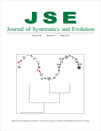
Journal of Systematics and Evolution
Advancing the Frontiers of Ecology and EvolutionThe Journal of Systematics and Evolution, published by WILEY, is a premier academic journal dedicated to advancing the fields of Ecology, Evolution, Behavior, and Systematics and Plant Science. With a distinguished Q1 ranking in both of these critical categories in 2023, it stands at the forefront of scientific research, placing it in the top quartile among its peers. Featuring both an ISSN of 1674-4918 and an E-ISSN of 1759-6831, the journal has been converging innovative research since its inception in 2008. The journal caters to a global audience of researchers, professionals, and students, providing a platform for disseminating significant findings and fostering academic dialogue. Its impressive Scopus rankings further affirm its impact, coming in at Rank #62/721 in Ecology and Rank #48/516 in Plant Science, highlighting its relevance and influence in these vibrant fields. As an open-access journal, it ensures that groundbreaking research is accessible to all, thus enhancing collaborative opportunities within the scientific community.